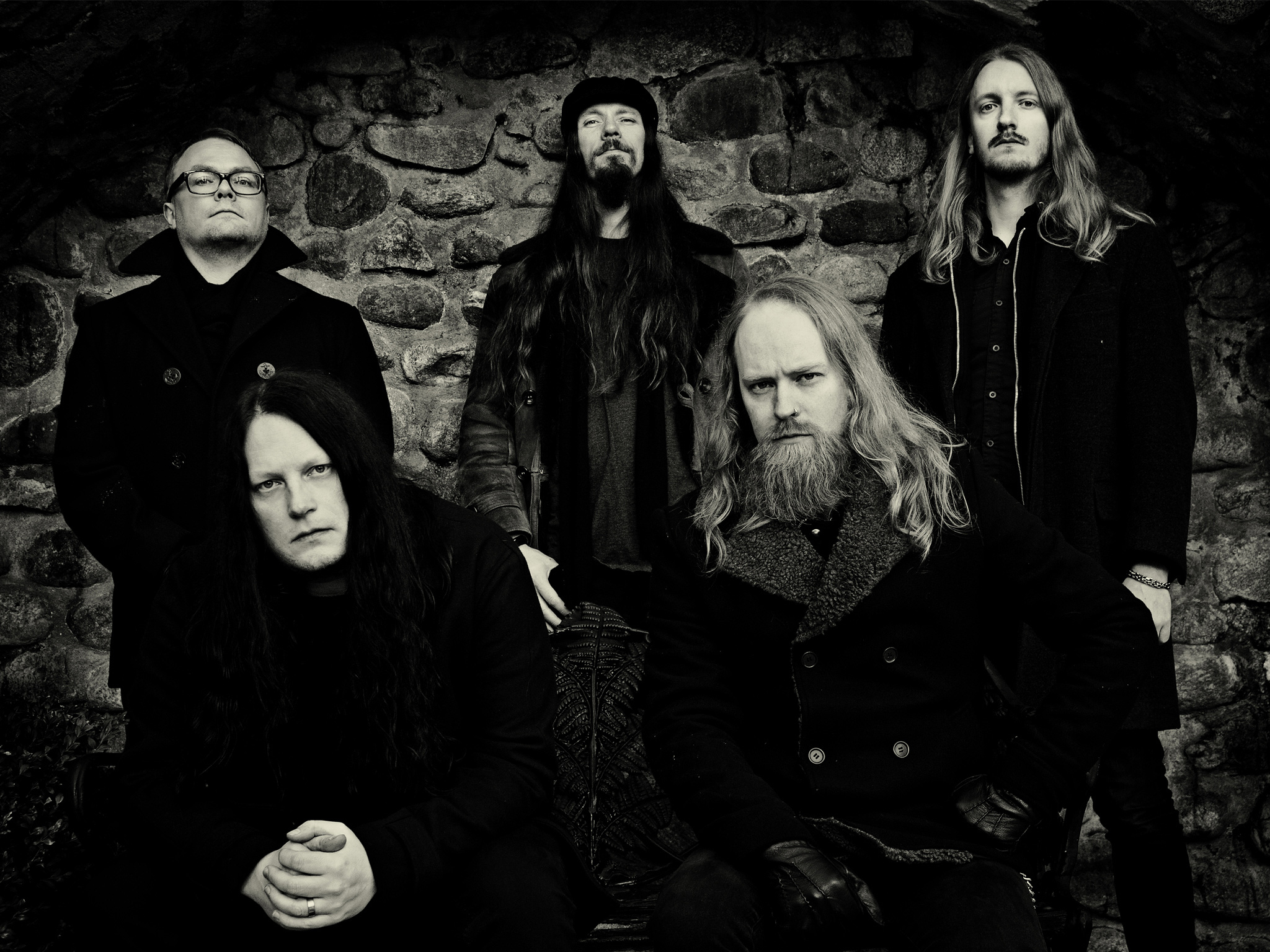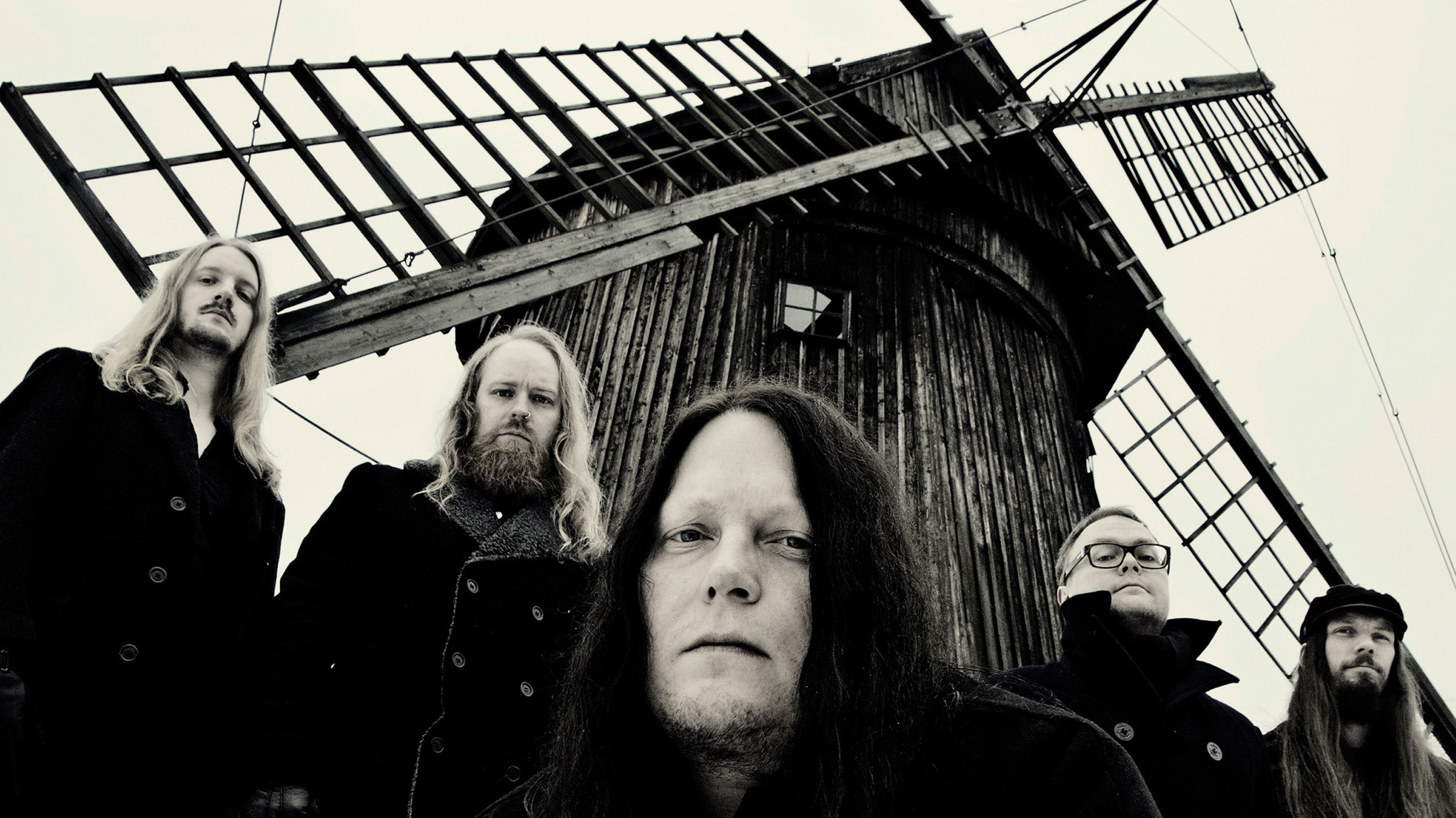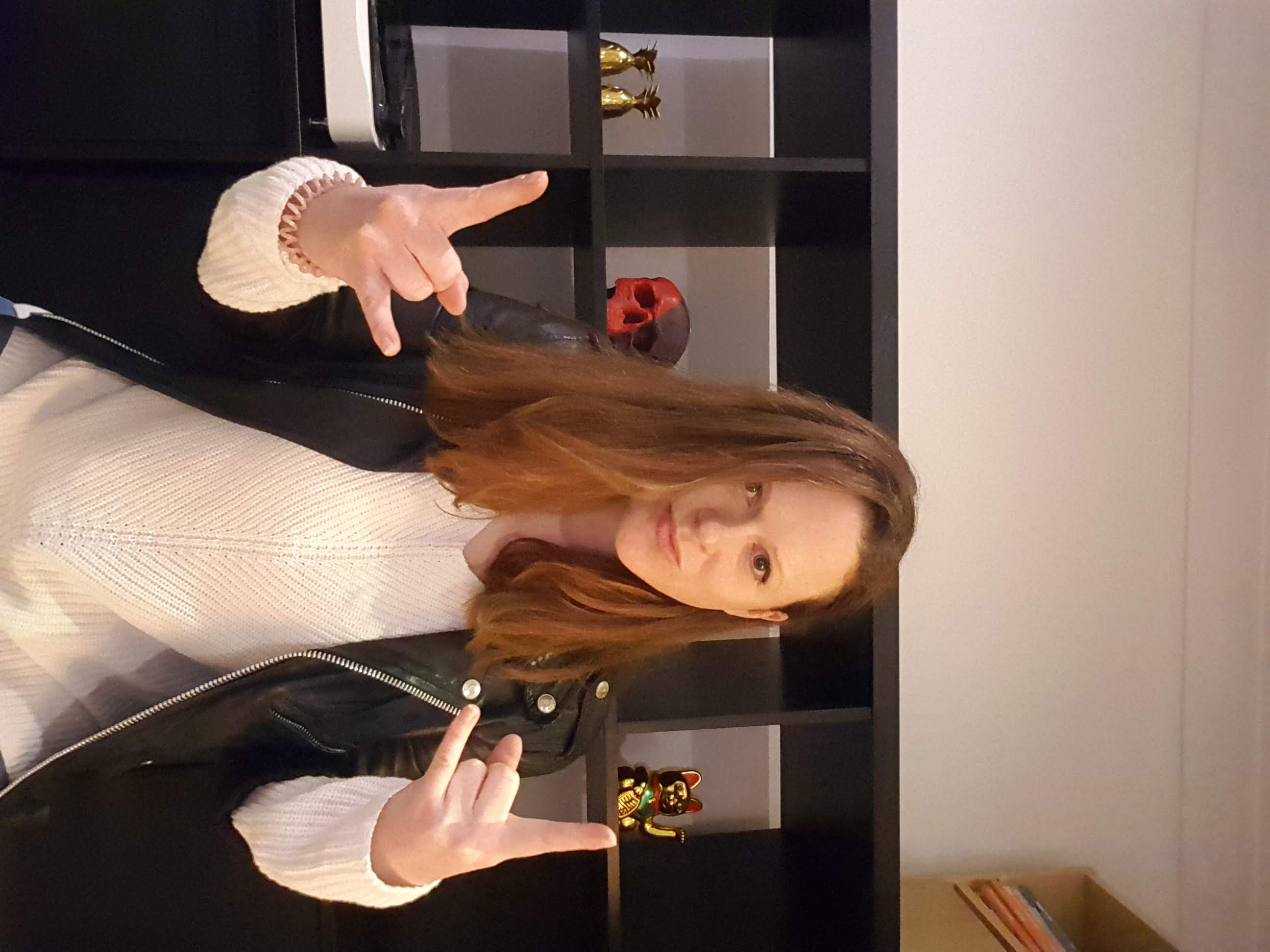In progressive terms, 1991 was a pivotal year for extreme music.
While grunge was emerging on both sides of the Atlantic, techno was bringing in a new wave of dance music and the after-effects of hair metal could still be felt, in Scandinavia there was a pocket of bands forming who would have a massive influence on progressive metal. Those bands were Opeth, Enslaved and Katatonia. All three built upon the extreme sonic landscape of their homelands but were also melodic, atmospheric and progressive. Whether they knew it or not, they were spearheading a new approach to black and death metal.
Taking their cue from the UK’s burgeoning doom metal scene and blending it with the visceral attack of black metal bands like their homeland’s Bathory, Sweden’s Katatonia have mastered their musical balance. For the last 10 years in particular, Katatonia have produced some of the most emotively forlorn and yet life-affirming and beautiful sounds that heavy music can offer; and now they have come up with what is probably their most progressive record to date.
It’s shortly before the release of their new album, The Fall Of Hearts, and Prog sits down with founding members Anders Nyström and Jonas Renkse. Nyström is in reminiscent mode, looking back at the band’s origins as we discuss Katatonia’s natural progression over the years.
“At the beginning of the band, this whole gothic, melodic, doomy scene was non-existent here in Sweden,” he explains. “Everyone here was either playing black metal or death metal. We looked to the UK and saw bands like My Dying Bride, Paradise Lost and Anathema who had their own thing going on there. We really identified with those bands so we said, ‘Why don’t we become the fourth band of that genre, but from Sweden?’
“Obviously our roots were with our heritage,” he adds. “But I think what really made Katatonia stand out was that we blended those styles so effectively. All that gothic doomy stuff was blended up with this harsh, Scandinavian black metal edge from Bathory and that’s how Katatonia was born, and it was immediately embraced.”
Self-confessed Paradise Lost fanboys Nyström and Renkse fell in love with the atmospheric vibe that bands of that ilk provided, and they quickly learned how to mimic that sound by experimenting with pedals and adding delay to otherwise standard riffs and hooks.
Discovering just what a pedal could do was a revelation.
Katatonia fans who discovered the band’s music in recent years might be startled by their first few albums. Between 1993 and 1996 they used harsh vocals on record because, at the time, it was all they knew. Growing up in Stockholm and belonging to the local rock scene, Nyström and Renkse would often bump into Mikael Åkerfeldt and they quickly became pals, to the extent that Åkerfeldt would play session guitar for them.
After their debut album Dance Of December Souls, Jonas lost his voice and decided that growling wasn’t for him. They then brought in Åkerfeldt to provide vocals on the next record, Brave Murder Day. But what happened after that paved the way for the Katatonia that most of us are probably familiar with: on 1998’s Discouraged Ones, Renkse tried clean singing for the first time, and although it needed a bit of work, the band could see his potential.
“We took pride in Jonas’ vocal style,” says Nyström. “It wasn’t just this ballsy, full-lungs style of singing, like power metal or opera – it was very low-key. His voice, combined with the heaviness, was the essence of Katatonia.”
From Discouraged Ones on, it was plain sailing for Katatonia, even if Renkse admits to being a “wreck” when he first made the switch. But by 2001’s Last Fair Deal Gone Down, these Swedes had hit their stride with lush melodies, strings, progressive rhythms, reassuring vocal layers and soaring guitars. Now, six albums in, Katatonia’s songwriting is still improving in leaps and bounds. For them, the song is all that matters.
“When we write an album, the primary discussion is always about the songwriting,” explains Nyström. “Everyone’s personal desires have to take a step back because the song is number one. These days our whole motto with the band is to write good music and good songs and if it gives you goosebumps, it’s a keeper.”
It was a formula that still works. Talking to Nyström and Renkse today, it’s evident that without the duo’s friendship, Katatonia would never have got to the place they are now. Earlier in the year, they were invited to play 70,000 Tons Of Metal, a luxurious cruise around the Caribbean featuring a stellar line-up of bands. Despite the double workload, with both Katatonia and their other band Bloodbath on the bill, they still had time to enjoy the pleasurable experience of a jaunt around the world’s more exotic surroundings.
“It was really well arranged, no dramas, work and holiday,” says Nyström. “It was a nice cruise, we had some nice cabins, we were able to set foot in Jamaica for the first time, but it was still bizarre because there was a band playing 24⁄7. You could watch a band playing at 3 o’clock in the morning and you have all these places to eat and drink and it’s free because it’s all-inclusive. I guess it’s a paradise for the metalhead.”

Popular legend has it that the band’s frontman is quiet, almost to the point of being withdrawn. But chatting with Prog today, away from prying cameras and during a time when his kids are off school and he’s been able to spend some quality Easter time with them (he mentions that they love it because they get to eat candy), Jonas Renkse is relaxed and talkative. He even jokes about the comments he gets about his hair covering his face in YouTube interviews – “That’s the point! This isn’t a model show.” – and about his gloomy lyrics: “I can’t write about having a picnic in the sun.”
Asked if he sees any special magic in the union between his voice and his long‑time buddy’s atmospheric guitar expertise, his response is suitably low-key. “That’s probably natural – it’s not something we think about,” he says. “We do love sad and gloomy music but we don’t want to make something that’s unlistenable. We started the band 25 years ago so we know each other very well, both personally and musically. We’ve done this for a long time, we know what to expect from each other and we know where we want to go, so I think the cooperation creates a big part of the sound. It’s just a very lucky relationship, I guess.”
For every harsh vocal or dissonant riff, there has always been a softer side to Katatonia, and the last two records allowed them to explore the melodic, semi-acoustic side of their personality. The lush layers and twinkling atmosphere of Dethroned & Uncrowned led into Sanctitude, a live acoustic album consisting of performances from Dethroned… alongside reworkings of songs from the group’s back catalogue. It was recorded at the Union Chapel in London and features Bruce Soord on guitar, as well as The Gathering’s Silje Wergeland. In terms of prog credentials, it’s pretty high up there.
In fact, though The Fall Of Hearts benefits from their more stripped-down approach, the most noticeable thing is how progressive it is. Take Serac, for instance – it’s seven minutes of tumbling off-kilter riffs that bear an uncanny resemblance to Opeth, except with Katatonia’s signature gloom and a lot of shredding that highlights the band’s heavy credentials.
It’s an excellent combination, and one that has a lot to do with their new line-up. The Fall Of Hearts is the first record to feature new drummer Daniel Moilanen and guitarist Roger Öjersson. For Nyström, it’s been a breath of fresh air.
“We’ve had the urge to go as progressive as this in the past but things have held us back. But we are ready at this point, and with Daniel and Roger on board, we could pull it off. Technically, we’ve been able to go into territories we haven’t been able to explore before.”
For a band that has been considered somewhere within the remit of prog for over half their career, interestingly they’ve had very little contact with the genre’s main players, except for some early exposure via Renkse’s dad… not that they really ‘got’ it at the time.
“Jonas’ father has actually been a big prog fan his whole life,” explains Nyström. “He was constantly playing Jethro Tull. When we asked if we could borrow the record player to put on Bathory he would say, ‘Guys, give this a chance.’ We could tell that it wasn’t just some boring record that a mum or dad would put on, it was intriguing, but we were so into extreme music that it just wasn’t enough at the time. If Jethro Tull’s singer growled maybe we would have loved it!”
That was back then, but now Katatonia are far more in touch with the ever-expanding landscape of progressive rock. They’ve toured with Opeth in the US and Renkse lent his vocals to Arjen Lucassen’s Ayreon project on 01011001, as well as collaborating with Bruce Soord for 2013’s Wisdom Of Crowds project. While their latest album poses their “biggest challenge so far” performance-wise, Katatonia are aiming high in 2016 with a plan in place to perform live with a 30-piece orchestra in Bulgaria.
“We’re all really excited and looking forward to that,” says Nyström with a big grin. “It’s going to be a great year for Katatonia!”

